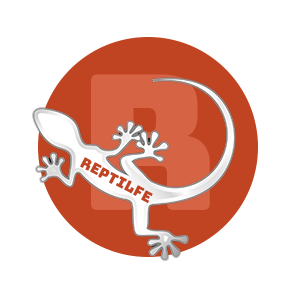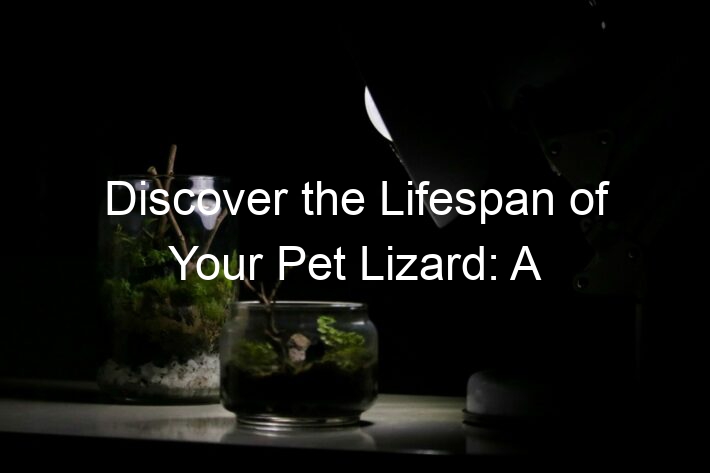Introduction to Reptile Nutrition
When it comes to the health and well-being of our reptile friends, nutrition plays a pivotal role. Just like humans, reptiles require a balanced diet to stay healthy and active. In this section, we will delve into the importance of a balanced diet for reptiles and debunk some common misconceptions about their dietary needs.
- Importance of a Balanced Diet for Reptiles
Reptiles, like all living creatures, require a balanced diet to maintain good health. Their diet should consist of a variety of nutrients including proteins, carbohydrates, vitamins, and minerals. A balanced diet ensures that reptiles have the energy they need to grow, reproduce, and stay active. It also strengthens their immune system, helping them fight off diseases.
Did you know that a reptile’s diet can influence its lifespan? According to a study, reptiles fed with a balanced diet lived up to 30% longer than those fed with an unbalanced diet. This highlights the importance of feeding your reptile pet with the right foods.
- Common Misconceptions about Reptile Diet
There are several misconceptions about reptile nutrition that can harm your pet’s health. One common myth is that all reptiles eat the same food. This is not true. Different species of reptiles have different dietary needs. For instance, some reptiles are herbivores, some are carnivores, and others are omnivores.
Another misconception is that reptiles can survive on a diet of only insects or lettuce. While insects and lettuce can be part of a reptile’s diet, they should not be the only food source. Reptiles need a variety of foods to get all the nutrients they need.
In the following sections, we will delve deeper into understanding the perfect reptile diet, creating a balanced reptile diet, adding variety to your reptile’s diet, and common mistakes in crafting a reptile diet. Stay tuned to learn more about reptile nutrition.
Understanding the Perfect Reptile Diet
Just like humans, reptiles need a balanced diet to stay healthy and active. But what does the perfect reptile diet look like? Let’s delve into the key components of a reptile’s diet and understand how these dietary needs can vary by species.
- Key Components of a Reptile’s Diet
There are several key components that make up a balanced diet for a reptile. These include:
-
- Proteins: Reptiles need proteins for growth and repair. This can come from insects, small animals, and certain types of plants.
- Fats: Fats provide energy and help absorb vitamins. They can be found in foods like insects and small animals.
- Carbohydrates: While reptiles don’t need as many carbohydrates as humans, they still play a role in providing energy. Fruits and vegetables are good sources of carbohydrates for reptiles.
- Vitamins and Minerals: These are crucial for a reptile’s overall health. They can be found in a variety of foods, including fruits, vegetables, and insects.
Remember, the exact proportions of these components can vary depending on the species of the reptile. Always do your research or consult with a vet to ensure your reptile is getting a balanced diet.
- How Reptile Dietary Needs Vary by Species
Not all reptiles eat the same things. In fact, the diet of a reptile can vary greatly depending on its species. Here are a few examples:
-
- Tortoises: These are primarily herbivores, meaning they eat mostly plants. A tortoise’s diet should consist of a variety of leafy greens, fruits, and vegetables.
- Bearded Dragons: Bearded dragons are omnivores. They eat a mix of insects, small animals, and plants.
- Snakes: Most snakes are carnivores and require a diet of small animals like mice or rats.
It’s important to note that these are just general guidelines. Each reptile is unique and may have its own specific dietary needs. Always consult with a vet or a reptile expert to ensure your pet is getting the nutrition it needs.
Creating a Balanced Reptile Diet
When it comes to creating a balanced diet for your reptile, one of the key components to consider is protein. Protein plays a vital role in the growth and development of reptiles. Let’s delve into the best sources of protein for reptiles and how much protein your reptile needs.
Protein Sources
Protein is an essential part of a reptile’s diet. It helps in building strong muscles and maintaining good health. But where can you get the best protein sources for your reptile? Let’s find out.
- Best protein sources for reptiles
Insects, such as crickets, mealworms, and roaches, are excellent protein sources for most reptiles. Small rodents, like mice and rats, are also good for larger reptiles. Some reptiles, like certain types of turtles, can also benefit from fish. Remember, the protein source should be appropriate for the size and species of your reptile.
- How much protein your reptile needs
The amount of protein your reptile needs can vary based on their species, age, and size. For example, young, growing reptiles typically need more protein than adults. A general rule of thumb is that protein should make up about 20-30% of a reptile’s diet. However, it’s always best to consult with a vet or a reptile expert to determine the exact amount of protein your specific reptile needs.
Remember, a balanced diet is crucial for your reptile’s overall health and wellbeing. By providing the right amount of protein from appropriate sources, you can ensure your reptile thrives.
Vitamins and Minerals
Just like us, reptiles also need a variety of vitamins and minerals to stay healthy. These nutrients play a crucial role in their overall health, growth, and vitality. Let’s delve into the essential vitamins and minerals for reptiles and how you can ensure your reptile is getting enough of them.
- Essential Vitamins and Minerals for Reptiles
Reptiles require a wide range of vitamins and minerals. Some of the most important ones include:
| Vitamin/Mineral | Role |
|---|---|
| Vitamin A | Essential for good vision, growth, and skin health. |
| Vitamin D3 | Helps in calcium absorption, crucial for bone health. |
| Calcium | Important for bone structure and nerve function. |
| Phosphorus | Works with calcium to build strong bones and teeth. |
Remember, each reptile species may have different nutritional needs. Always research your specific reptile’s requirements or consult with a vet.
- How to Ensure Your Reptile is Getting Enough Vitamins and Minerals
Ensuring your reptile gets the right amount of vitamins and minerals can be a bit tricky. Here are some tips:
- Provide a Balanced Diet: A diet that includes a variety of foods will help ensure your reptile gets a mix of different nutrients. This could include insects, fruits, vegetables, and specially formulated reptile food.
- Use Supplements: Reptile dietary supplements can help fill any nutritional gaps. These usually come in powder form and can be sprinkled on your reptile’s food.
- Regular Vet Check-ups: Regular check-ups with a vet who specializes in reptiles can help monitor their health and adjust their diet as needed.
Remember, over-supplementing can be just as harmful as not providing enough. Always follow the recommended dosage and consult with a vet.
Adding Variety to Your Reptile’s Diet
Just like humans, reptiles thrive on a varied diet. This doesn’t mean giving them a different meal every day, but rather ensuring they get a mix of nutrients over time. Let’s explore the benefits of a varied diet for reptiles and provide some examples for different species.
- Benefits of a varied diet for reptiles
A varied diet for your reptile is not just about keeping their meals interesting. It’s about providing them with a range of nutrients that they need to stay healthy. Here are some benefits:
-
- Improved Health: A varied diet can help prevent nutritional deficiencies and related health issues.
- Longer Lifespan: Proper nutrition can contribute to a longer, healthier life for your reptile.
- Better Immunity: A balanced diet can boost your reptile’s immune system, helping them fight off diseases.
What constitutes a varied diet can differ greatly between reptile species. Here are some examples:
- Bearded Dragons: These omnivores enjoy a mix of insects, fruits, and vegetables. A varied diet might include crickets, mealworms, bell peppers, and strawberries.
- Leopard Geckos: These insectivores need a diet of different insects, like mealworms, crickets, and waxworms.
- Green Iguanas: As herbivores, they thrive on a diet of leafy greens, vegetables, and fruits. Variety can be added with kale, bell peppers, and bananas.
Remember, always research your specific reptile’s dietary needs and consult with a vet if you’re unsure. A varied diet can make a significant difference in your pet’s health and happiness.
Common Mistakes in Crafting a Reptile Diet
When it comes to reptile nutrition, there are several common mistakes that many pet owners make. These mistakes can lead to health problems and even shorten the lifespan of your reptile. Let’s take a closer look at these mistakes and how to avoid them.
- Overfeeding or underfeeding: It’s important to feed your reptile the right amount of food. Overfeeding can lead to obesity and other health problems, while underfeeding can result in malnutrition. The correct amount varies depending on the species and size of your reptile.
- Feeding the wrong types of food: Different reptiles have different dietary needs. For example, some are carnivores, some are herbivores, and others are omnivores. Feeding the wrong types of food can lead to nutritional deficiencies or excesses.
- Not providing enough variety: Just like humans, reptiles need a varied diet to get all the nutrients they need. Feeding your reptile the same food every day can lead to nutritional imbalances.
- Signs of a balanced diet in reptiles: A balanced diet will keep your reptile healthy and active. Signs of a balanced diet include regular growth, healthy skin and eyes, and regular bowel movements.
- Signs of nutritional deficiencies or excesses: If your reptile is not getting the right nutrients, it may show signs such as lethargy, weight loss or gain, skin problems, and changes in behavior.
- How to adjust your reptile’s diet as it grows: As your reptile grows, its dietary needs will change. Young reptiles often need more protein for growth, while adults need a balanced diet to maintain their health.
- How to adjust the diet based on health changes: If your reptile is showing signs of health problems, you may need to adjust its diet. For example, a reptile with a digestive problem may need a diet with more fiber.
- What a balanced diet looks like for a bearded dragon: A balanced diet for a bearded dragon includes a mix of insects, vegetables, and fruits. They also need a source of calcium, such as cuttlebone or a calcium supplement.
- How to add variety to a bearded dragon’s diet: To add variety to your bearded dragon’s diet, you can offer different types of insects and rotate the vegetables and fruits you feed it. You can also offer treats like mealworms or waxworms occasionally.
Key takeaways for creating a nutritious and varied diet
To create a nutritious and varied diet for your reptile, remember to feed the right amount, offer a variety of foods, and adjust the diet as needed based on your reptile’s growth and health. Proper nutrition is crucial for your reptile’s health and well-being. By avoiding common mistakes and providing a balanced and varied diet, you can help your reptile live a long and healthy life.




